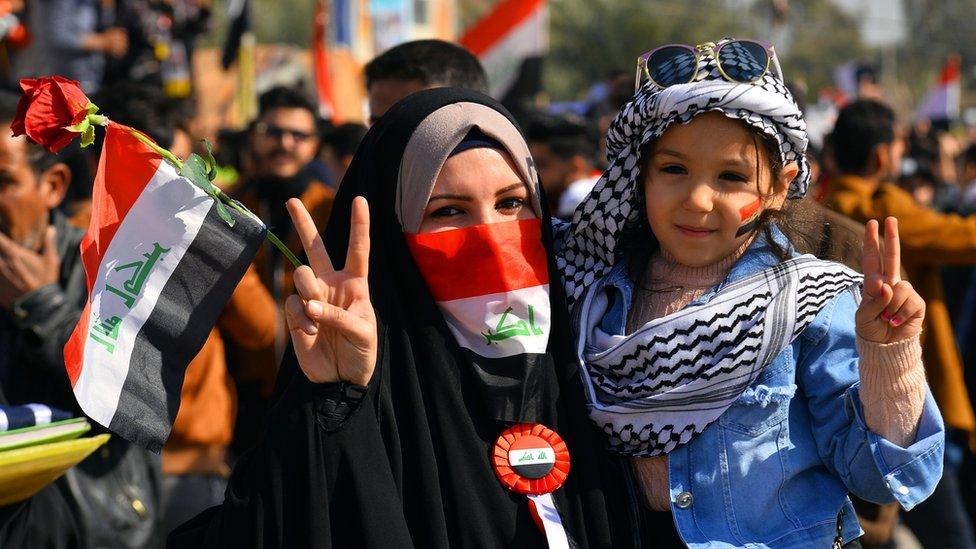Iraq power vacuum as political crisis hits PM post
- Published
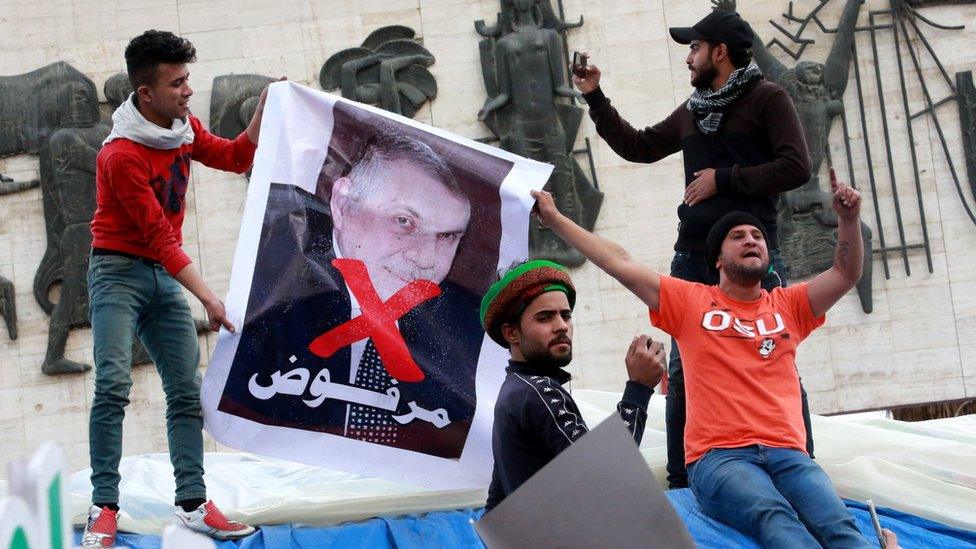
Anti-government protesters had rejected Mohammed Allawi's candidacy
Iraq's caretaker prime minister will begin a "voluntary absence" after parliament failed to approve his designated successor's cabinet.
Adel Abdul Mahdi said he would no longer carry out most of his official duties and urged lawmakers to call early elections in December.
On Sunday, Mohammed Allawi withdrew his nomination for the premiership.
He said political parties were not serious about implementing the reforms promised to anti-government protesters.
President Barham Saleh said he would propose another prime minister within 15 days, in line with the constitution.
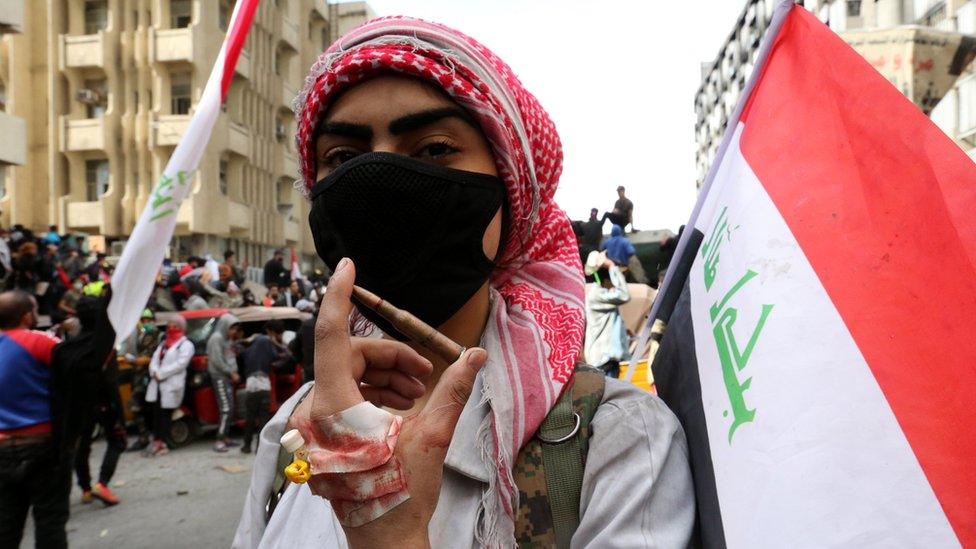
Live ammunition has repeatedly been used against unarmed protesters
It has been five months since Iraqis began taking to the streets of Baghdad and many southern cities to express their anger at endemic corruption, high unemployment, dire public services and foreign interference in the oil-rich country.
More than 450 unarmed protesters have been shot dead by security forces and unidentified gunmen during the unrest. Thousands of others have been injured.
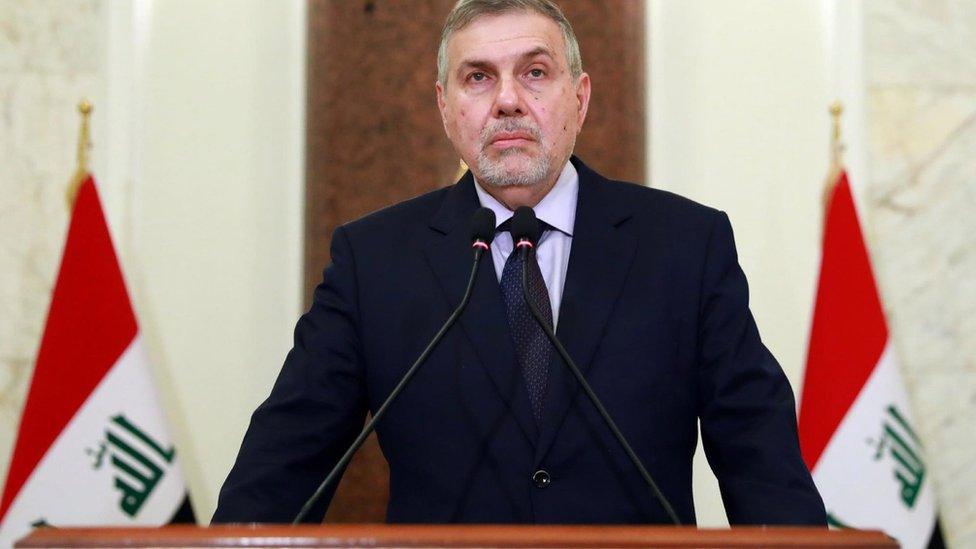
Mr Allawi was named prime minister-designate in February
Mr Allawi was named as prime minister-designate in February, ending two months of deadlock in parliament following the resignation of Mr Abdul Mahdi.
On Sunday night, after parliament failed for a second time in a week to hold a vote on his proposed cabinet, the former communications minister announced that he was withdrawing his nomination.
"I tried by all possible means to save Iraq from drifting to the unknown and to solve the current crisis, but during negotiations I faced many matters," he said.
"The choice was simple and clear, which was to stand with my patient people, especially when I saw that some political groups were not serious about reform and their promises to the people," he added, without naming any parties. "They put in place obstacles [to prevent] the formation of an independent government."
(December 2019) Iraq ends year in political turmoil
The powerful populist Shia Muslim cleric Moqtada Sadr said Mr Allawi had taken the decision "for the love of Iraq", and accused "corrupt" politicians of "holding the country hostage".
But protesters in Baghdad's Tahrir Square, who had rejected Mr Allawi as the choice of the political establishment they want to sweep away in its entirety, celebrated the announcement.
"We hope that the president will nominate an acceptable candidate whom everyone on the streets of Iraq can agree on," one young man told Reuters news agency.
"The Iraqi street is angry. The candidate should not come through the will of parties, the corrupt parties which we want to remove," he added.
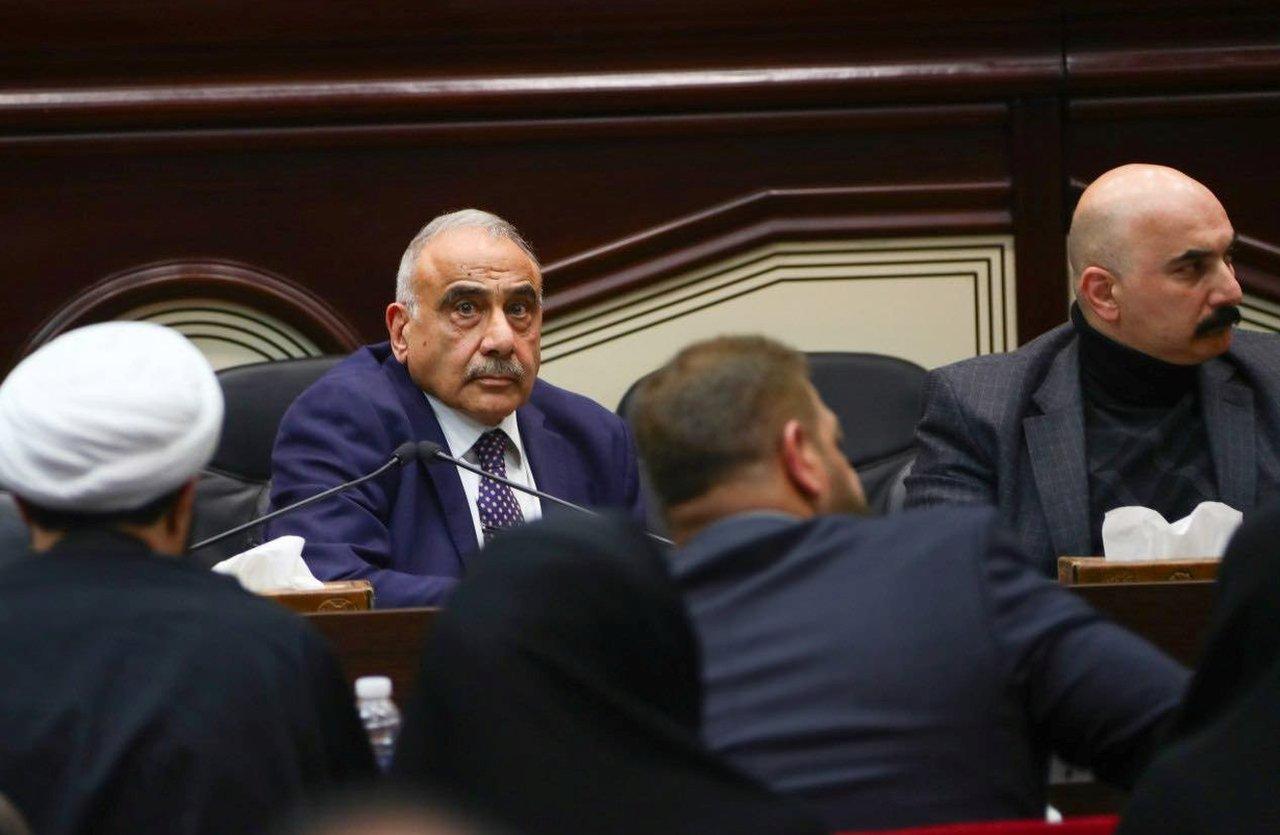
Adel Abdul Mahdi resigned in November in response to the protests
On Monday evening, Mr Abdul Mahdi said he had decided not to quit as caretaker prime minister, which he had threatened to do.
"The most dangerous thing that we currently face is the prospect of a constitutional and administrative vacuum," he said in a statement.
But Mr Abdul Mahdi warned that he would stop carrying out most official duties - including chairing cabinet meetings, signing documents, and meeting foreign dignitaries - to put pressure on parliament to finalise new electoral legislation, dissolve itself and call early elections.
He said he was acting in line with the due legal and constitutional provisions.
- Published1 February 2020
